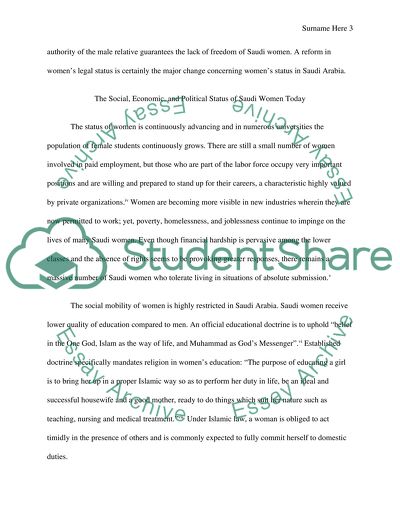Cite this document
(“What is the current social, economic and political status of women in Research Paper”, n.d.)
What is the current social, economic and political status of women in Research Paper. Retrieved from https://studentshare.org/history/1623675-what-is-the-current-social-economic-and-political-status-of-women-in-saudi-arabia-what-are-the-obstacles-to-true-reform-of-womens-rights-in-saudi-arabia
What is the current social, economic and political status of women in Research Paper. Retrieved from https://studentshare.org/history/1623675-what-is-the-current-social-economic-and-political-status-of-women-in-saudi-arabia-what-are-the-obstacles-to-true-reform-of-womens-rights-in-saudi-arabia
(What Is the Current Social, Economic and Political Status of Women in Research Paper)
What Is the Current Social, Economic and Political Status of Women in Research Paper. https://studentshare.org/history/1623675-what-is-the-current-social-economic-and-political-status-of-women-in-saudi-arabia-what-are-the-obstacles-to-true-reform-of-womens-rights-in-saudi-arabia.
What Is the Current Social, Economic and Political Status of Women in Research Paper. https://studentshare.org/history/1623675-what-is-the-current-social-economic-and-political-status-of-women-in-saudi-arabia-what-are-the-obstacles-to-true-reform-of-womens-rights-in-saudi-arabia.
“What Is the Current Social, Economic and Political Status of Women in Research Paper”, n.d. https://studentshare.org/history/1623675-what-is-the-current-social-economic-and-political-status-of-women-in-saudi-arabia-what-are-the-obstacles-to-true-reform-of-womens-rights-in-saudi-arabia.


